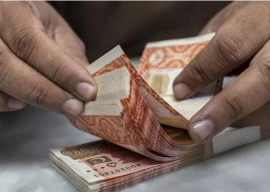
Production at Pakistan’s large-scale manufacturing industries (LSMI) decreased by 9.35%, marking the third consecutive month of decline in March 2024, according to data from the Pakistan Bureau of Statistics (PBS).
The monthly Quantum Index of Manufacturing (QIM) dropped to 115.5 in March, compared to 132.4 in December 2023, with significant decreases observed in output from sugar, cement, and iron and steel products.
However, another dataset from the bureau indicates a 2.04% increase in output at large industries in March compared to the same month last year. Industries reporting increased output in March include garments, fertilisers, petroleum products, cotton yarn, and cotton cloths.
According to JS Global Research, March marks the fourth consecutive month of year-on-year increase in LSMI output, with output remaining high from December 2023 to March 2024 compared to the same period last year.
PBS reports an overall negative growth of 0.10% in the large-scale manufacturing sector during July-March 2023-24 compared to the same period last year. While production has increased in sectors such as food, wearing apparel, coke and petroleum products, chemicals, fertilisers, pharmaceuticals, machinery and equipment, and furniture, it has decreased in sectors like tobacco, textile, paper and board, non-metallic mineral products, iron and steel products, electrical equipment, automobiles, and other transport equipment.
The LSM sector continues to struggle due to government policies aimed at cooling down the previously overheated economy. To recall, high inflation, reaching a multi-decade high of 38% in May 2023, prompted the central bank to raise its interest rate by 15 percentage points from September 2021 to June 2023, reaching a record high of 22%. Despite inflation easing to 17.1% in April 2024, the bank has maintained the interest rate since late June 2023.
Additionally, notable rupee depreciation and low foreign exchange reserves also contributed to the decline in LSM output.
Experts suggest that the revival of LSMs depends on significant cuts in interest rates and improved availability of forex reserves.
Published in The Express Tribune, May 16th, 2024.
Like Business on Facebook, follow @TribuneBiz on Twitter to stay informed and join in the conversation.





1725967717-0/Untitled-design-(3)1725967717-0-165x106.webp)















COMMENTS
Comments are moderated and generally will be posted if they are on-topic and not abusive.
For more information, please see our Comments FAQ